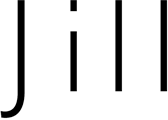
A WALK IN MY LIBRARY:
DECEMBER 31, 2020
JASON BUTLER'S EXHIBITION
Meyer Schapiro, “Theory and Philosophy of Art: Style, Artist and Society

BEHIND THE SCENES:
LIOR GALL, BRUSSELS, 2020
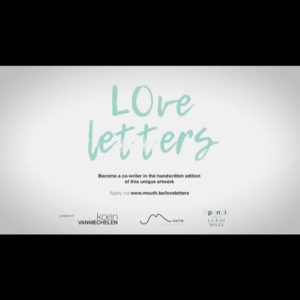
HIGHLIGHT:
LOVE LETTERS
A new participative project by artist Koen Vanmechelen

BEHIND THE SCENES:
LINDA KARSHAN AND THE BROOKLYN RAIL

BEHIND THE SCENES:
NOVEMBER 2020, LINDA KARSHAN
The Covid Conversation, A New Film
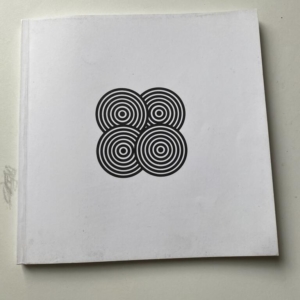
A WALK IN MY LIBRARY:
PARIS, NOV. 6, 2020
ABËTËI by Ishmael Fiifi Annobil

BEHIND THE SCENES:
MATHILDE BRETILLOT
Designs new offices for Parfums de Marly, Paris

BEHIND THE SCENES:
BERLIN STUDIO VISIT - LUKAS HOFFMANN

BEHIND THE SCENES:
BERLIN

BEHIND THE SCENES:
GALERIE NÄCHST ST. STEPHAN ROSEMARIE SCHWARZWÄLDER, VIENNA
Friederike Mayröcker, Curator Hans Ulrich Obrist - until 10 Oct
Schutzgeister/Guardian Spirits
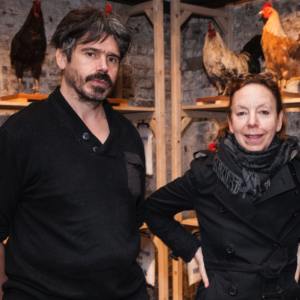
BEHIND THE SCENES:
JSVCPROJECTS AND KOEN VANMECHELEN
The Battery Channel Podcast
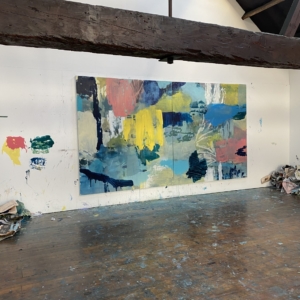
BEHIND THE SCENES:
ARTISTS IN THE STUDIO, JERSEY
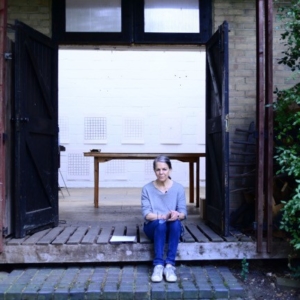
BEHIND THE SCENES:
MANIFEST OF THE TRUE

A WALK IN MY LIBRARY:
3 LOVE POEMS IN THE SUMMER

BEHIND THE SCENES:
SUMMER NEWS

BEHIND THE SCENES:
ROD MENGHAM,
Awarded the Cholmondeley Award for Poets

BEHIND THE SCENES:
JILL SILVERMAN VAN COENEGRACHTS RECOMMENDS

BEHIND THE SCENES:
LINDA KARSHAN
Studio visit

BEHIND THE SCENES:
STEFANO CIGADA,
"Frammenti" at the Museo di Roma in Trastevere

HAPPY NEW YEAR 2020!
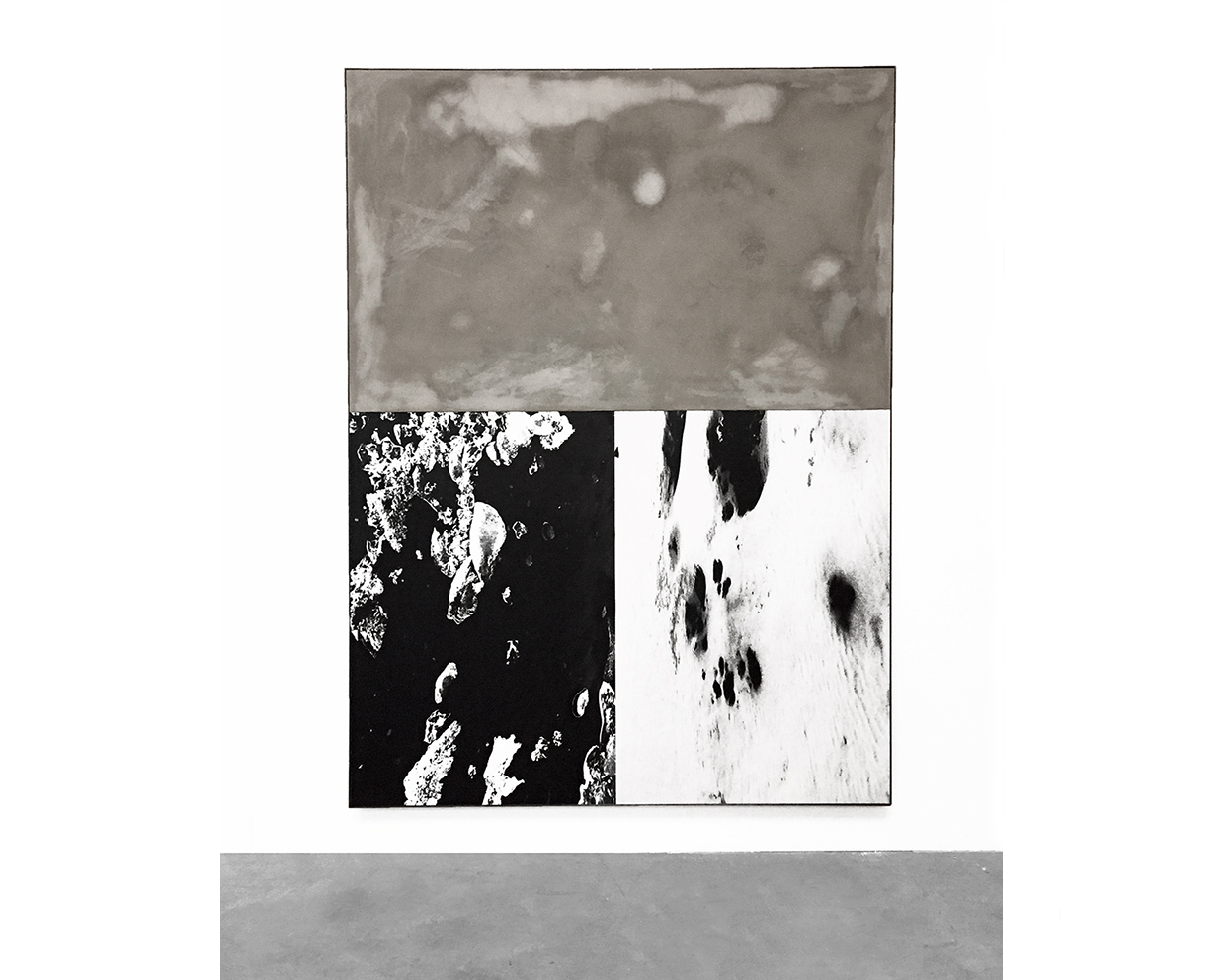
BEHIND THE SCENES:
LIOR GALL, BRUSSELS, 2020
December 18th 2020
Depth of Field
Part I
I have known Lior Gal over a dozen years. I have looked at his work, visited the studio, written and curated with him. More when he was based in Paris than this last period when he settled in Brussels. He was one of a very strong crew of young artists who worked as installers at ROPAC during my time there 2005-2012. They were a smart group, insightful, cheery, ironic, careful with the work of artists more famous and much older. I relied often on their back and forth when we installed without the artist.
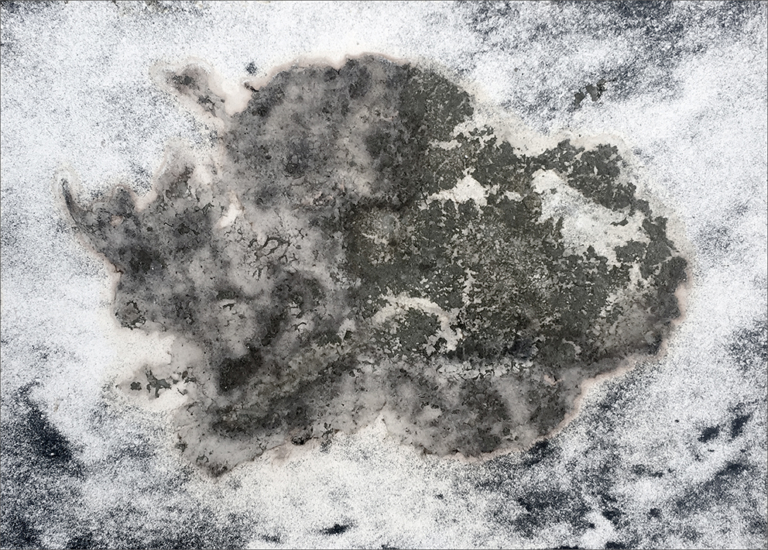
Gelatin silver print, Mold, Unique work, 13cm x 18cm, Mounted on wood, Metal frame
We debated curatorial decisions with vigor. It was their apprenticeship for seeing the hard work that goes along with being an artist and making one exhibition after the next. How to stay in honest relationship with the work as a gallerist? What does it mean moving one work into relationship with another. What does this caretaking involve and how will work be received. We have a duty of care, I always said. Lior was often the last to leave, looking longer, helping in untold ways. Dutiful, concerned, reliable. I grew to depend on this as a way of relieving my nagging sense that I might let the artist down in some way, or that my choices would prevent the audience from understanding the work in the way it was intended.
It was a terrible morning when Thaddaeus awaited me in the office and announced that Lior was leaving to work with Kiefer. “Anselm needs Lior,” was all he said. Of course I knew why. I had also seen a bit of his work by then. Kiefer knew what he wanted and so Lior became his studio assistant.
Part II
Our paths cross again sometime around 2014 in Paris. He is making art full time. We have studio visits in his atelier near Gare du Nord where he also has a large darkroom. For some reason the two artists working with photography I have followed are die-hard loyalists to film and develop their own. Shout out to Lukas Hoffmann another ROPAC graduate.
Researching now I find an exhibition planned with the two of them and painter Gregory Cumins, Depth of Field. Surprisingly the text is still relevant. “In traditional art history, the viewer approaches a work through its relationship with something called depth of field. The space in front of the work belonged to the viewer. The space inside the work is the artist’s to divide and animate as they see fit. The tension between these two zones creates a vibration where depth of field places the viewer somewhere particular in relation to the inner world of the work – this is the subject of three artists in different medium. Lior Gal clings to the precision of real film.
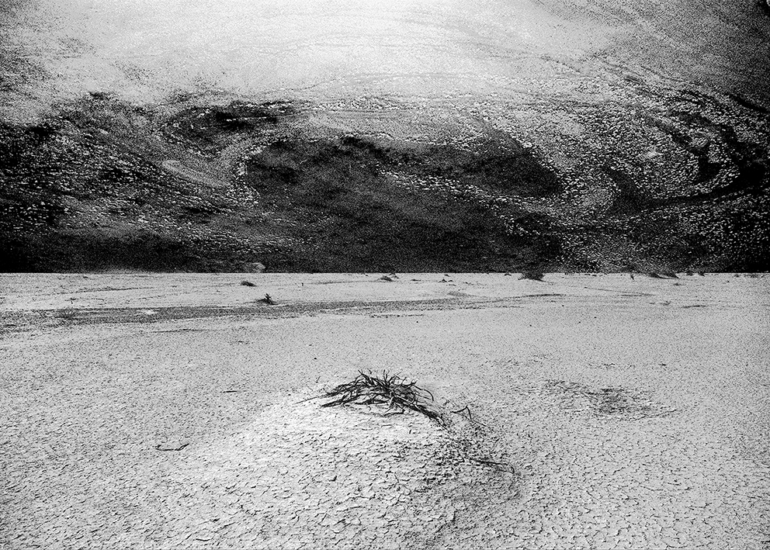
Gelatin silver print, Collage of two images, Unique print, 74cm x 100cm, Mounted on wood, Metal frame
Lior Gal is a Brussels based, Israeli born artist who creates near apocalyptic landscapes of great proportion. He creates striking photographic works constructed by often joining two images taken during long walking expeditions (Death Valley, Icelandic Coast, Grand Canyon, Sahara Desert). These images photographed in black and white are developed and used as unidentifiable typologies of near abstract form that when juxtaposed appear joined by a seam that becomes then as if by magic, a horizon line. These appear to fly towards the viewer or recede into the emptiness of deep space. Our eyes are stymied and unable to recognize nature in her bare essence. He is brave enough to let this be the condition of his work.”
In this he does a great service to the condition of looking unapologetically. It is work conceived in harsh conditions by an eye that values this dialectic. Black and white; ice and sun.
Part III
We talk about poets and writers. He revisits Rilke; I discover the following text from 2014, still inspired. “William Wordsworth urged us to travel through landscapes in order to fulfill our soul–travelling through landscapes where man’s influence is still insignificant, not only effects our soul but also weakens the feeling of superiority over nature.”
I realize rereading his early text that along with Koen Vanmechelen, Lior Gal shares a place in my interests with artists – like Joseph Beuys — who understand we are not the dominant force in the universe but instead one among many at the mercy of mother nature.
“As an artist,” he writes, “I see nature not as a whole but as infinite fragments of individuals that perfectly fit into place. I select and record those fragments, capturing them in a certain manner so that the selected ones obtain a particular and different meaning. At a later point in the process, through the technique of collage, juxtaposing two separate fragments, a different image is created. This final image becomes estranged from reality and closer to the imaginary world from where inspiration is drawn.”
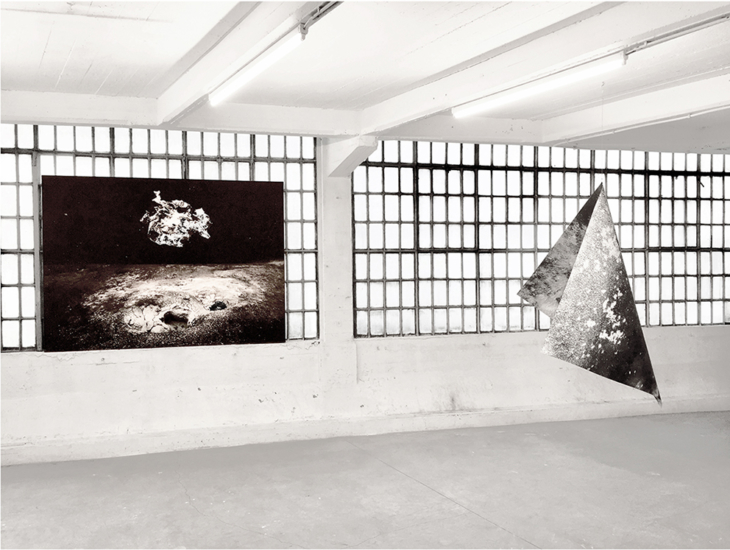
Left: From series The Greatest Possible Distance From Eden, 2015,
Gelatin silver print and colour inkjet print, Collage of two images, Unique print, 170 cm x 229 cm, Mounted on wood, Metal frame,
Right: Untitled, 2018, Gelatin silver print, Collage, 160 cm x 90 cm x 40 cm (approx)
“The aim is to evoke in the viewer a paradoxical sensation and to create a dialogue between the familiar and the unknown. I work with classic negative film, mainly black and white, and print all photos myself in the darkroom. I do not use any artificial manipulation in the process.”
This strikes me now as then like the first time I met my late mother-in-law in Maastricht twenty-five years ago, a proud intelligent formidable woman who never wore a smidge of make up. To this day I remain stunned by that bold brazen confidence. Terrifying in the same breath as refreshing, these works of Lior Gal dare the eye to see nature unadorned.
